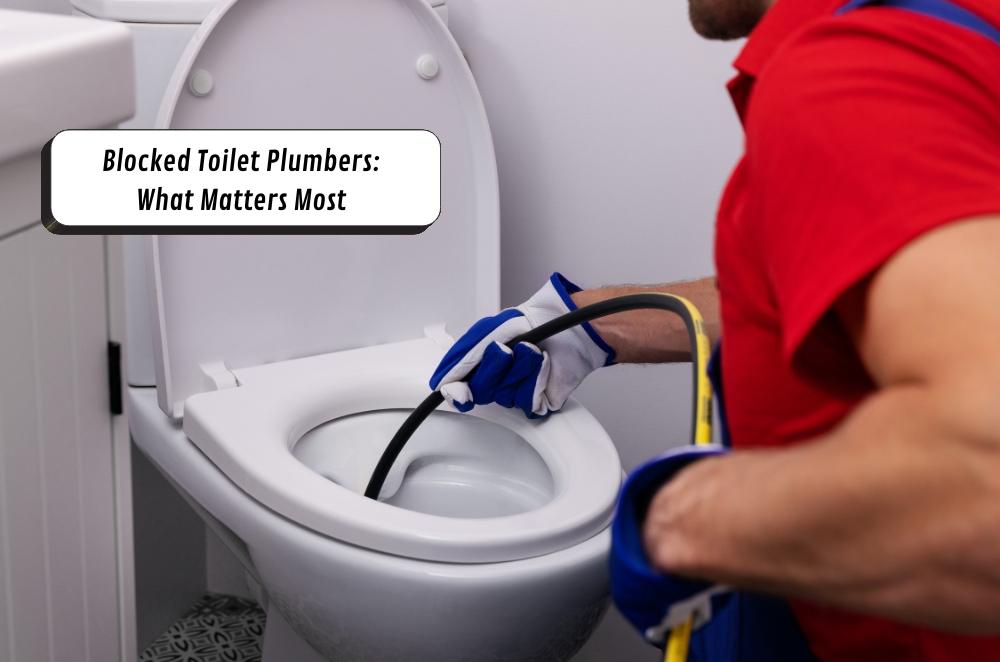Blocked Toilet Plumbers: What Matters Most

Blocked toilets are messy, stressful, and almost always show up at the worst moment. A plunger can sometimes save the day, but not every blockage is that simple, and rushing in can make a bad problem worse. We look for the early signs such as slow draining, odd gurgles, rising water levels and even the smell before deciding how to act. If it’s minor, gentle plunging or safe cleaners are enough. Bigger issues like collapsed pipes or tree roots call for proper tools. In short, unclogging a blocked toilet isn’t about force but judgement. Careful steps reduce damage and cost while keeping the household running. One smart move early often saves three repairs later.
What stops a blocked toilet faster?
A blocked toilet is cleared faster by starting small, using careful plunging and safe cleaners instead of risky, quick fixes.
The trick is to manage the water level first so the plunger seals properly, then use short pushes to dislodge the clog without forcing it further down. If the bowl is brimming, we scoop a little out before plunging. A damp rag over the plunger rim helps with stubborn seals. For softer blockages, enzyme-based cleaners can work overnight without damaging pipes. In most cases, the gentlest approach proves the fastest.
-
Use a flange plunger designed for toilets
-
Liftthe seat and lid to release air
-
Turn off the cistern tap before bailing
blocked toilet troubleshooting steps
How do plumbers clear tough clogs?
Plumbers clear tough clogs by choosing the right tool for the job, whether it’s an auger or hydro-jetting gear.
If the blockage is close to the pan, a flexible auger can hook debris or break it apart without scratching porcelain. Deeper blockages need more muscle. Hydro-jets blast through grease, paper knots and silt while flushing everything downstream. With old pipes, high pressure is dialled back to avoid splits. Suspected tree roots might mean cutters or treatments that keep the pipes intact. Each step is tested by watching water levels and refill times before moving on.
When should you ring a plumber?
You should call a plumber when the blockage won’t clear, water leaks at the base, or non-flushables are involved.
Slow drains across multiple fixtures, foul smells, or bubbling in nearby sinks suggest a deeper problem. If the toilet clears but clogs again within hours, it is often a sign of something shifting in the line. Water escaping onto the floor points to a bad seal that needs urgent attention. In these cases, stopping DIY early prevents worse damage.
-
Persistent overflow or strong sewage smell
-
Nappies, wipes, or toys flushed by accident
It also helps to pick carefully, since choosing the right plumber can mean the difference between a quick repair and a recurring headache.
Conclusion
Toilets block for all sorts of reasons, but panic usually makes things worse. Start with the basics, use patience, and know the signs that call for professional help. Gentle fixes protect your fittings, while expert tools solve the tougher problems without wrecking the system. Paying attention to early warnings saves time, money and stress. In the end, a blocked toilet is less about luck and more about making the right call when it matters.






